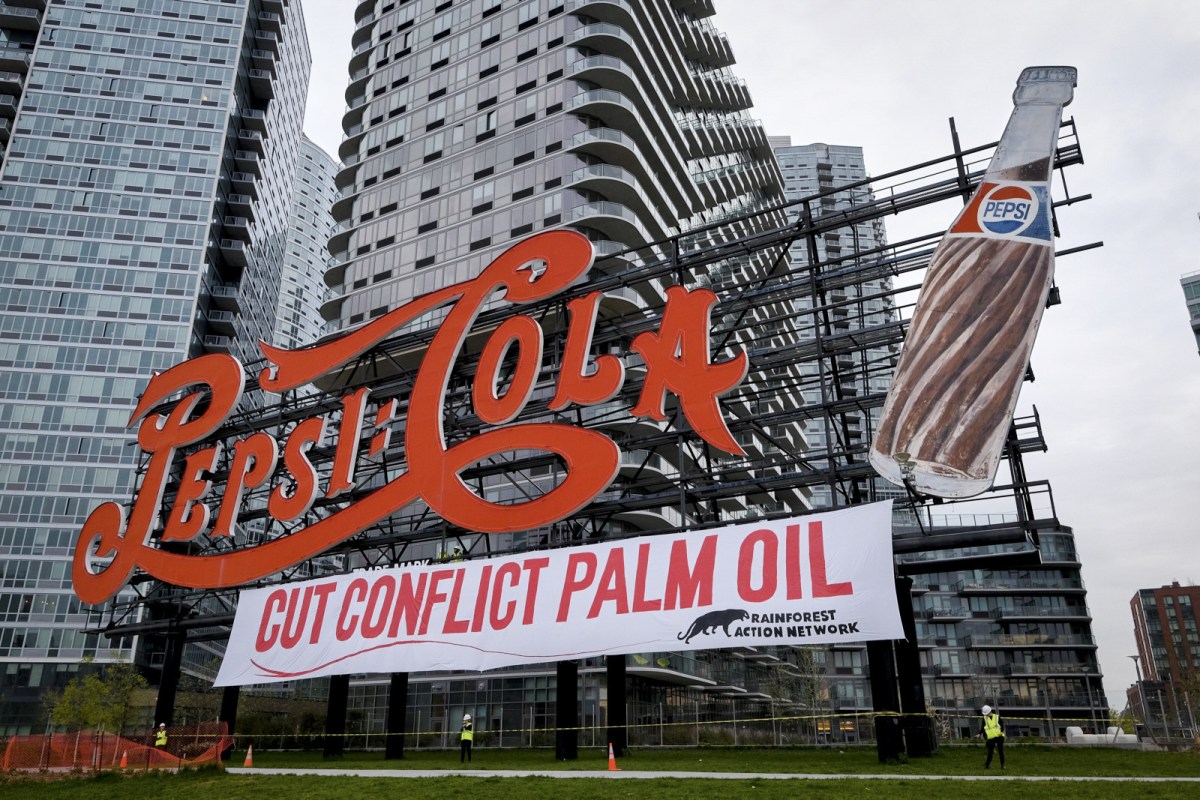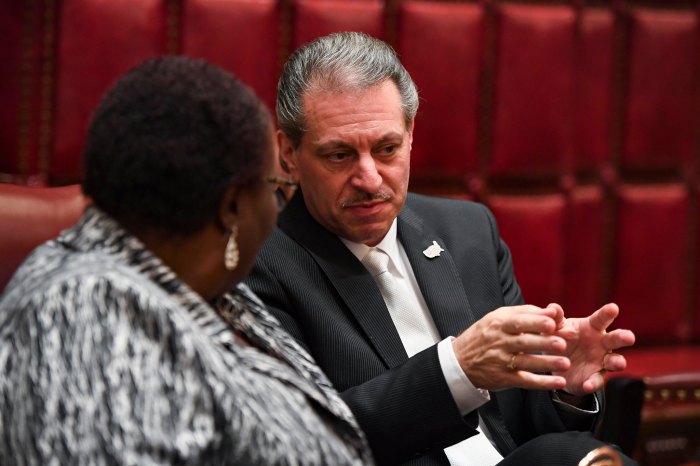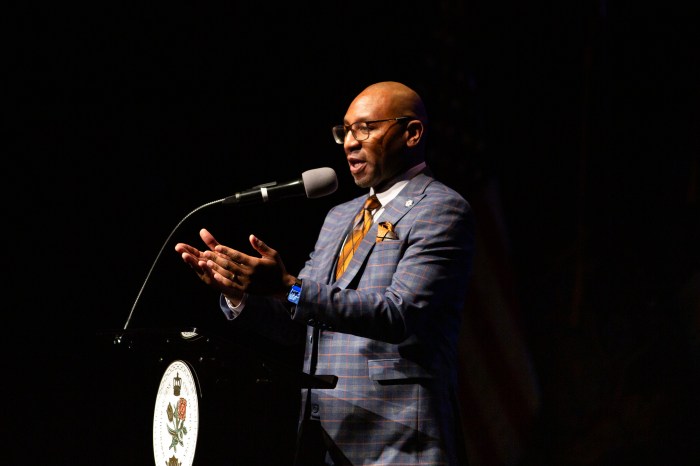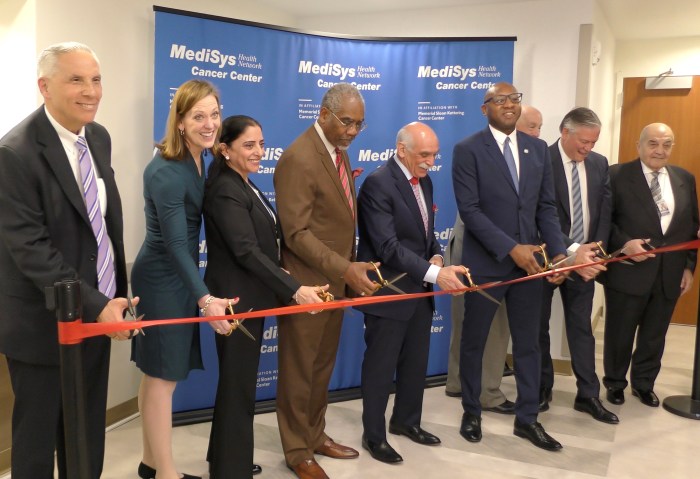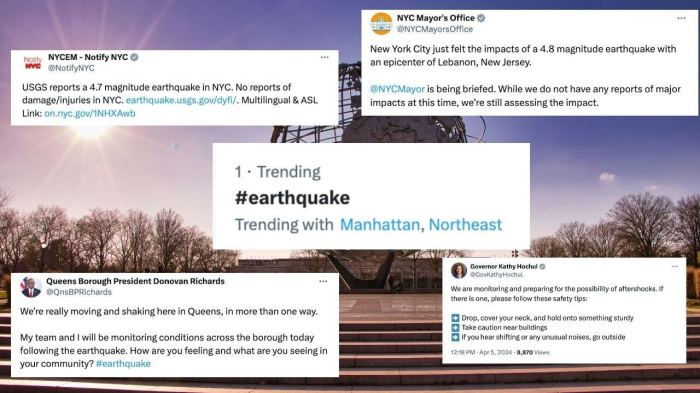Members of the Rain Forest Action Network (RAN) on Monday used the iconic Pepsi-Cola sign in Long Island City to protest the beverage company’s use of palm oil in its products.
The 100-by-15-foot banner placed on the Pepsi-Cola sign read “cut conflict palm oil” in red block letters, NBC New York first reported. According to RAN, palm oil is used in roughly 50 percent of packaged goods sold in United States grocery stores and is commonly used in the fast food industry to cook food such as French fries.
“We chose the iconic Pepsi sign in Queens because it is perhaps the most widely known Pepsi-branded image in the world and we felt it was time to send Pepsi a message so loud and clear they cannot ignore it,” said Laurel Sutherlin, senior communications strategist for RAN. “What we hope to achieve is to pressure Pepsi to do the right thing and use their global influence to demand that their palm oil suppliers no longer perpetuate the egregious abuses under way in Indonesia.”
The oil, which is harvested and produced in Africa, Southeast Asia and Brazil, is considered one of the leading causes of forest destruction as companies clear forests to make way for palm oil plantations. According to RAN, palm oil is one of the biggest threats to the critically endangered Sumatran orangutan and endangered Borneo orangutan in Indonesia and Malaysia.
Pepsi, the largest globally distributed snack food company, has failed to release a comprehensive, responsible palm oil policy and is the only brand in the Snack Food 20 not to do so, according to RAN.
In a blog post, the rain forest advocacy group said this action is part of a three-year campaign to pressure the company to address its human rights abuses and deforestation.
“While many of PepsiCo’s competitors have adopted aggressive timelines to source only responsible palm oil, PepsiCo has continued with a ‘business as usual’ timeline of 2020, positioning the company as a laggard among its peers,” said Jessica Serrante, a national organizer with RAN.
Palm oil companies are also known to forcefully remove indigenous people from their land to set up these plantations and employee child labor and modern-day slavery, according to RAN’s website.
On May 4, Pepsi’s Annual General Meeting of shareholders will take place in North Carolina. RAN is collecting photo petitions of activists around the world to deliver to PepsiCo CEO Indra Nooyi at the meeting. The group is asking people to upload photos with printable signs and to use the hashtag #SolidarityWithPalmOilWorkers.
PepsiCo spokesperson Aurora Gonzalez said the company has a Palm Oil Action Plan that outlines its commitment to using sustainable palm oil. PepsiCo has met its commitment to sourcing 100 percent certified sustainable palm oil by 2015 and is now looking to reach 100 percent physically certified sustainable palm oil by 2020.
“When questions arise about the practices of suppliers, we take them seriously and engage to address the matter,” Gonzalez said. “As RAN knows, we investigate every alleged violation of our policy they or any other person or organization has brought to us.”

